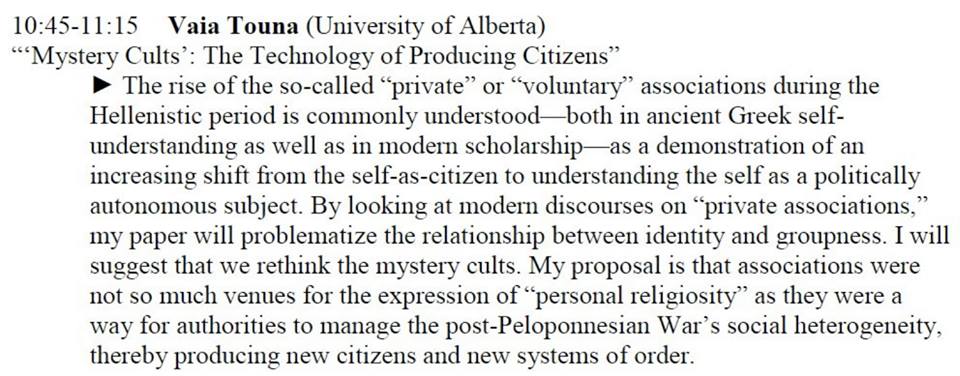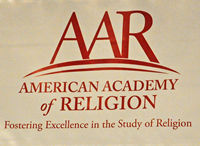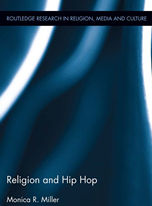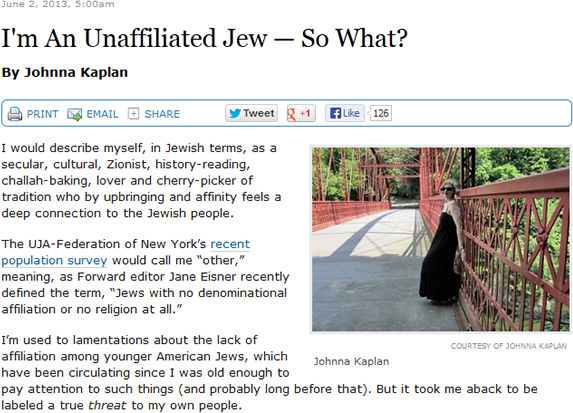One of the premises of Culture on the Edge is that an implicit, untheorized norm is still presupposed, and its legitimacy is thereby reproduced rather than being historicized, despite many scholars’ recent efforts to develop what they see to be more nuanced, historically sensitive, and situationally specific approaches to identity studies. For it is not uncommon to find seemingly anti-essentialist scholars now studying various identities in terms of their hybridity, seeing them as creoles, studying how diaspora movements have traveled and changed, and documenting the complexity of syncretism–developments understood as important improvements on what are now seen to be previous generations’ far too simplistic studies of social life. After all, as important a an early sociologist as Emile Durkheim seems merely to have understood “society” to be a homogenous, undifferentiated unit. Continue reading “That Ain’t The Queen’s English”
Unsettling Sikh and Muslim Conflict
Katy P. Sian, Unsettling Sikh and Muslim Conflict: Mistaken Identities, Forced Conversion, and Postcolonial Formations (Lexington Books, 2013).
Sian focuses on the process of identification and the ways the interests of those who identify as Sikhs and the context of contemporary Britain generate narratives about “dangerous Muslims” seducing young Sikh women. These narratives address multiple community issues (e.g., shifting gender relations, generational differences, differentiation from a feared Muslim other, alliance with Europeans, etc.). Although a little thin in places, she clearly illustrates Sikh identity as continually constructed, not pre-existing.
A Critical Question
Over at the blog for the Bulletin for the Study of Religion, Merinda Simmons has been among those invited to respond to their query about the line–if any–between scholarship and politics.
It’s Time to Be Honest With Lauryn Hill
Culture on the Edge participant, Monica Miller, recently posted a blog, “It’s Time to Be Honest With Lauryn Hill,” that concludes:
“Over the years, Hill’s lyrical lessons have jolted many from societal slumber and historical amnesia enough to make her a tour de force of the ‘conscious’ hip hop market. But Hill’s troubling portraits of lifestyles not her own are as problematic as the racism and capitalist systems she’s fought for so many years. As she tries to “…figure out how to pay her own tax debts,” may she also realize the expense imposed by her “existential catharsis” on LGBTQ individuals as they continue to fight for justice for their lives and partnerships. As we love to love Hill, let’s love her enough to be honest with her: Enough with responding to one social injustice by perpetuating another. You’re a better MC than that!”
To which Hill responded.
Touna Presents at Canadian Conferences
 In early June 2013, Culture on the Edge’s Vaia Touna presented her research at the Canadian Society for the Study of Religion‘s annual meeting, as well as at the Canadian Society of Biblical Studies–both held in Victoria, BC. The papers–one rethinking the common modern reading of Euripides’s “Hippolytos” as an expression of individualism and the other redescribing the notion of ancient mystery cults, seeing them not as sites for expressing religious experience (as they are usually described by scholars) but as places where marginal members of the city-state were integrated.
In early June 2013, Culture on the Edge’s Vaia Touna presented her research at the Canadian Society for the Study of Religion‘s annual meeting, as well as at the Canadian Society of Biblical Studies–both held in Victoria, BC. The papers–one rethinking the common modern reading of Euripides’s “Hippolytos” as an expression of individualism and the other redescribing the notion of ancient mystery cults, seeing them not as sites for expressing religious experience (as they are usually described by scholars) but as places where marginal members of the city-state were integrated.
Regional AAR President
 For 2012-3, Culture on the Edge’s Steven Ramey was President of the Southeastern Region of the American Academy of Religion (part of the Southeast Commission on the Study of Religion, or SECSOR). Visit our blog, Claims, to watch his Presidential Address.
For 2012-3, Culture on the Edge’s Steven Ramey was President of the Southeastern Region of the American Academy of Religion (part of the Southeast Commission on the Study of Religion, or SECSOR). Visit our blog, Claims, to watch his Presidential Address.
New Books in Religion: Religion and Hip Hop
 Check out an online interview posted at New Books in Religion with Culture on the Edge’s Monica Miller, about her recent book, Religion and Hip Hop (Routledge, 2012). “She does not perform a theological or religious analysis of music or lyrics as a search for meaning but rather examines the material productions of Hip Hop culture and the manufactured zones of significance within various discourses.”
Check out an online interview posted at New Books in Religion with Culture on the Edge’s Monica Miller, about her recent book, Religion and Hip Hop (Routledge, 2012). “She does not perform a theological or religious analysis of music or lyrics as a search for meaning but rather examines the material productions of Hip Hop culture and the manufactured zones of significance within various discourses.”
“Sacred” and “the Sacred”: False Cognates
 “Sacred” is an adjective; “the Sacred” is a noun. In The Ideology of Religious Studies, Tim Fitzgerald discusses the adjectival use:
“Sacred” is an adjective; “the Sacred” is a noun. In The Ideology of Religious Studies, Tim Fitzgerald discusses the adjectival use:
If by ‘sacred’ we mean those things, ideas, places, people, stories, procedures and principles that empirical groups of people value, deem to be constitutive of their collective identity, or will defend to the death, then it seems likely that we have a relatively meaningful crosscultural concept. (19) Continue reading ““Sacred” and “the Sacred”: False Cognates”
Cherry Pickers
On the weekend a Facebook friend posted a link to an interesting blog post on contests over modern Jewish identity. It opened as follows:
Silencing the Past
Michel-Rolph Trouillot, Silencing the Past: Power and the Production of History (Beacon Press, 1995).
A practical series of case studies (e.g., the Hatian Revolution) by the late (d. 2012) University of Chicago Professor of Anthropology/Social Sciences on how discourses on the past are not about recovering or remembering enduring items from history so much as deploying techniques in the present continually to limit what in the archives will count as the past. As such, how does one write a history of the forgotten, “a history of the impossible”–a genealogy of the choices that led to this or that narrative of “the past.”

